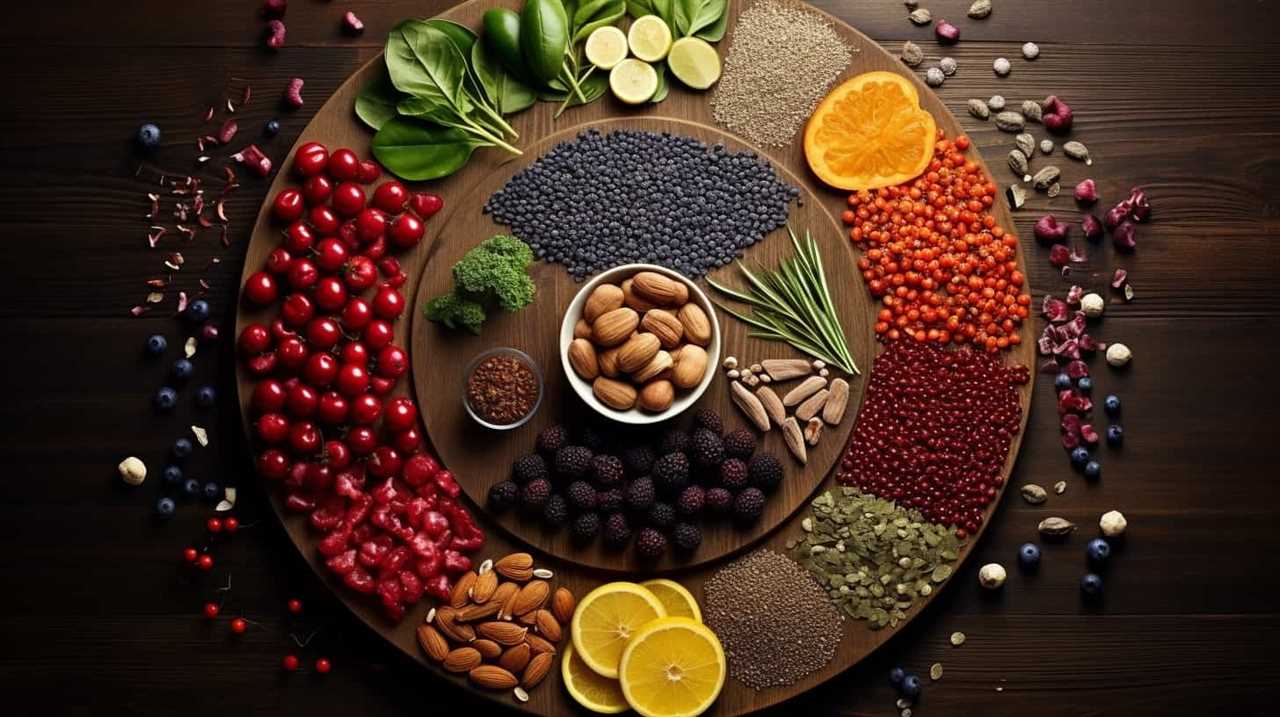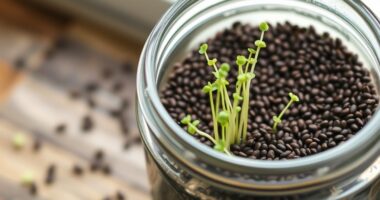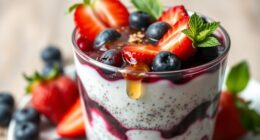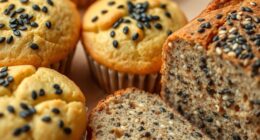Welcome to our in-depth guide on successful chia seed farming business! We are thrilled to provide you with effective strategies for increasing yields and maximizing profits.
From choosing the perfect chia seed varieties to mastering effective planting and harvesting methods, we’ve got you covered.
Get ready to dive into the world of chia seed cultivation and unlock the secrets to a thriving and liberated farming experience.
Let’s embark on this empowering journey together!

Key Takeaways
- Prioritize traits like yield potential, disease resistance, and adaptability to different growing conditions.
- Stay up-to-date with chia seed market trends and choose varieties that meet the market’s needs.
- Consider the nutritional benefits of chia seeds, such as high protein and omega-3 fatty acid content.
- Implement effective farming techniques like integrated pest management, crop rotation, precision irrigation, targeted marketing, and sustainable and organic practices.
Choosing the Right Chia Seed Varieties
When selecting chia seed varieties for commercial farming, we prioritize traits such as yield potential, disease resistance, and adaptability to different growing conditions. It’s crucial to stay up-to-date with chia seed market trends to ensure success in the industry.
As the demand for chia seeds continues to grow, it’s important to choose varieties that can meet the market’s needs. Additionally, considering the nutritional benefits of chia seeds is essential. Chia seeds are known for their high protein and omega-3 fatty acid content, making them a popular choice among health-conscious consumers.
Essential Factors for Chia Seed Cultivation
To ensure successful chia seed cultivation, we prioritize implementing essential factors that contribute to optimal growth and yield. Here are the key factors to consider:
- Soil requirements: Chia seeds thrive in well-drained soils with a pH range of 6.0 to 8.0. The soil should be rich in organic matter and have good water-holding capacity to support healthy root development.
- Climate considerations: Chia plants require a warm and sunny climate for successful growth. They’re best suited for regions with a temperature range of 70 to 85°F (21 to 29°C). Chia farming should be avoided in areas prone to frost or extreme temperature fluctuations.
- Water management: Chia plants are drought-tolerant, but regular irrigation is necessary during the growing season to ensure proper germination and growth. Overwatering should be avoided, as it may lead to root rot.
- Weed control: Effective weed control is crucial to prevent competition for nutrients and resources. Mulching, crop rotation, and manual weeding are recommended methods to control weeds in chia fields.
Best Practices for Chia Seed Planting
For successful chia seed planting, we implement the following best practices.

- Proper soil preparation is crucial to ensure optimal growth and yield. Chia plants thrive in well-drained soil with a pH level between 6.0 and 8.0. Before planting, it’s recommended to conduct a soil test to assess its nutrient content and make any necessary amendments.
- Incorporating organic matter, such as compost or well-rotted manure, can improve soil fertility and moisture retention.
- Additionally, irrigation plays a vital role in chia seed cultivation. Adequate moisture is essential during germination and early growth stages. Drip irrigation or furrow irrigation are effective methods to provide consistent moisture without overwatering.
- Maintaining proper soil moisture levels is crucial, as chia plants are sensitive to drought stress.
By following these best practices, you can ensure successful chia seed planting and cultivation.
Now, let’s move on to discuss effective chia seed farming techniques.
Effective Chia Seed Farming Techniques
Now, let’s delve into the effective techniques we employ for commercial chia seed farming to maximize our yield and ensure optimal quality. Here are a few strategies we use:
- Integrated Pest Management (IPM): We implement a combination of cultural, biological, and chemical pest control methods to minimize the use of synthetic pesticides. This approach not only helps us protect the environment but also ensures the health of our chia plants.
- Crop Rotation: By rotating chia with other crops, we break the life cycle of pests and reduce the risk of disease buildup. This technique also helps maintain soil fertility and nutrient balance.
- Precision Irrigation: We utilize advanced irrigation systems that deliver water directly to the plant’s root zone, minimizing water waste and optimizing plant growth.
- Targeted Marketing: Our marketing strategies focus on reaching health-conscious consumers who prioritize sustainable and organic products. We leverage social media platforms, online marketplaces, and collaborations with local health food stores to promote our chia seeds.
Harvesting and Processing Chia Seeds
After implementing effective techniques such as integrated pest management and precision irrigation, we move on to the crucial step of harvesting and processing chia seeds. Harvesting chia seeds requires careful timing to ensure optimal seed maturity. Typically, chia plants are ready for harvest when the flowers have dried out and turned brown. To harvest, the plants are cut close to the ground and left to dry for a few days. Once dried, the plants are threshed to separate the seeds from the stems. Processing the chia seeds involves cleaning, sorting, and packaging. The table below highlights the nutritional benefits of chia seeds and potential market opportunities for chia seed products:

| Nutritional Benefits | Potential Market Opportunities |
|---|---|
| High in omega-3 fatty acids | Health food stores |
| Rich in fiber | Supermarkets |
| Good source of antioxidants | Online retailers |
| High in protein | Bakeries and restaurants |
| Gluten-free | Sports nutrition companies |
Conclusion
In conclusion, successful commercial chia seed farming requires careful selection of chia seed varieties, consideration of essential factors for cultivation, adherence to best planting practices, implementation of effective farming techniques, and proper harvesting and processing methods.
By following these guidelines, farmers can maximize their yield and ensure the quality of their chia seeds. As the saying goes, ‘A well-prepared field yields a bountiful harvest,’ and this holds true for chia seed farming.









